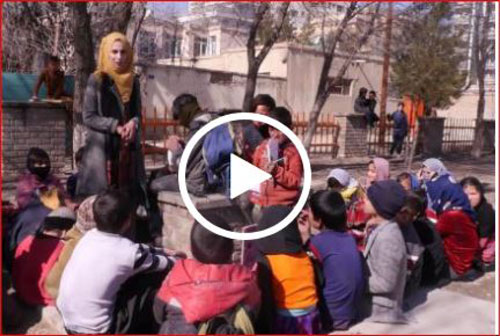Soda Najhand, a high school graduate, launched free education classes for children working as street vendors in Kabul. The children are taught for at least three hours a day in one of the Kabul parks.
“I started teaching them Dari first—to teach them how to read–and then step by step I started teaching them math and the Quran. They (students) are now even excited to learn English,” Najhand said.
The children said they have a great desire for educa-tion and want a brighter future. Over 30 students participate in the classes. “These children were first begging but I encour-aged them to work and stop begging. Then I en-couraged them to study. I think offering motivation is one of the best things to do at the moment,” Na-jhand said.
Many of these children are engaged in hazardous work and have been deprived of an education due to economic challenges.
Shikib, 7, is one of the students who also polishes shoes. “I have learned how to read. Before I didn’t know anything, but I know it now,” he said.
The students said that they are unable to pay for the private educational centers to continue their lessons, and therefore, they are participating in these classes. “I have learned both reading and writing,” said Anil, 8. “I didn’t have money to go to the educational courses. We call for help to continue our educa-tion,” said Sadaf, 6.
Afghanistan has repeatedly been ranked among the top worst countries for children. The decades-long conflict has affected Afghan children. Save the Children said in a recent report that due to severe poverty gripping Afghanistan, one-fifth of the fami-lies have been obliged to send their children to work. —TOLO








